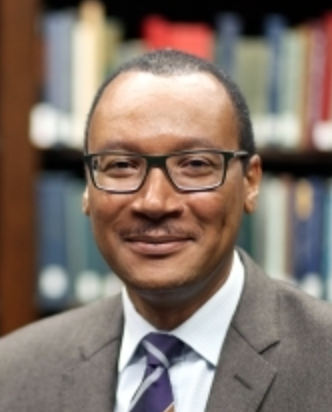You have /5 articles left.
Sign up for a free account or log in.

iStock
Philosophers are used to hearing and debating controversial ideas. But recent keynote speeches by philosophers at two different conferences -- including one talk that referred to being gay as a “disability” -- have some scholars wondering where the boundary between controversial thought and bigotry lies. Others say criticizing invited conference speakers amounts to censorship.
 In the first instance, at the Society for Analytical Feminism’s annual conference two weeks ago, Tommie Shelby (right), Caldwell Titcomb Professor of African and African-American Studies and of Philosophy at Harvard University, based his address on his forthcoming book, Dark Ghettos. Part of his argument was that ethical responsibilities, including those related to procreation, can’t be ignored because one is oppressed.
In the first instance, at the Society for Analytical Feminism’s annual conference two weeks ago, Tommie Shelby (right), Caldwell Titcomb Professor of African and African-American Studies and of Philosophy at Harvard University, based his address on his forthcoming book, Dark Ghettos. Part of his argument was that ethical responsibilities, including those related to procreation, can’t be ignored because one is oppressed.
Shelby did not respond to a request for comment, but some accounts of the event suggest that he was most offensive not during the talk itself, but during a question-and-answer period. One self-identified “poor black woman who was there” wrote in a comment on the popular philosophy blog Daily Nous that when asked about his methodology and the context of his arguments about reproductive ethics, Shelby dismissed such questions by saying he was “just trying to do philosophy.” It came across as “effectively demeaning the questions being posed to him and implying that those (black women) who were raising particular issues were not doing philosophy,” the attendee wrote.
“Last time I checked, metaphilosophical and intrinsic critiques do qualify as philosophy,” she added. “No, the issue is not the notion that ‘the oppressed have moral duties, too.’ Shelby actively silenced and belittled black women during a keynote where black women’s bodies were the object of discussion. That is offensive.”
Other attendees balked at the discussion, at least enough so that conference organizers sent out an email asking for feedback. It’s been reported that they apologized for Shelby’s talk, which has prompted another wave of criticism that such an apology amounted to censorship of an invited speaker.
Conference organizers maintain that they did not apologize for controversial philosophy, but rather apologized more generally about how the discussion was handled.
Distance vs. Censorship
 The second instance happened at last week’s Society of Christian Philosophers' Midwest conference. Richard Swinburne (right), professor emeritus of philosophy at the University of Oxford, reportedly referred to being gay as a “disability” and an “incurable condition.”
The second instance happened at last week’s Society of Christian Philosophers' Midwest conference. Richard Swinburne (right), professor emeritus of philosophy at the University of Oxford, reportedly referred to being gay as a “disability” and an “incurable condition.”
J. Edward Hackett, a senior lecturer in philosophy at the University of Akron, was in attendance and wrote that he was immediately offended. While Swinburne said he did not think homosexuality was intrinsically wrong in the same way that adultery was wrong, Hackett explained in a blog post, “he argued (if that’s the right verb under some principle of charity) that homosexuality was extrinsically wrong. Homosexuality was a disability in the lacking of the ability to have children, and God’s commands of abstaining from homosexuality might prevent others from fostering this incurable condition in others.”
Hackett said he told Swinburne that he’d effectively “medicalized being gay in the same way that phrenology medicalized racism.”
In a public Facebook post, Michael Rea, professor of philosophy at the University of Notre Dame and society president, expressed his “regret regarding the hurt” Swinburne’s comments caused. Rea said those views are not those of the society itself, and while its membership “is broadly united by way of religious faith, the views of our members are otherwise diverse.”
Rea said that society president, he is “committed to promoting the intellectual life of our philosophical community. Consequently (among other reasons), I am committed to the values of diversity and inclusion. As an organization, we have fallen short of those ideals before, and surely we will again. Nonetheless, I will strive for them going forward.”
Rea received praise for his comments, but also criticism. More than 70 scholars signed an open letter saying that while Swinburne’s “disability” reference was fraught, it’s a violation of academic freedom to chide an invited speaker to a conference on Christian philosophy for defending traditional Christian views on sexuality.
“Given that the [society] feels the need to apologize when one of the world’s premier philosophers defends what has been the standard Christian view for two millennia,” the letter says, “one wonders if the apology is meant to suggest that papers defending any doctrine or philosophical view that might prove offensive to someone wouldn’t be welcome at [society] conferences in the future.”
Yoram Hazony, a Jewish philosopher and president of the Herzl Institute, a research institute in Jerusalem, also said, as reported by The American Conservative, that it “hurts to see [Swinburne] being shamed in this way for taking a side in a philosophical and religious controversy. What are we trying to do -- create a world in which philosophers are only permitted to express certain views? Isn’t the traditional response to write an essay arguing with him, rather than posting an apology?”
Rea declined immediate comment on the matter, and Swinburne did not immediately respond to a request for comment.
Eric Schliesser, a professor of political theory at the University of Amsterdam, argued that Rea’s comments weren’t an apology at all. Expressing “regret [for] hurt done by others is a species of symbolic speech that falls short of censure,” he wrote on his blog. “There are contexts in which I would describe such expressions of regret as a cop-out. But given the intense reaction it provoked, it is clear that this went well beyond empty symbolism.”
Kathryn Norlock, the Kenneth Mark Drain Chair in Ethics at Trent University in Ontario and president of the Society for Analytical Feminism, did not provide the email to conference participants. A copy posted to the philosophy blog Leiter Reports says, in part, “What was said was wrong, and inappropriate at a feminist conference, and we take responsibility for our roles in the events that took place.”
But instead of apologizing for Shelby’s talk, Norlock said, the email “intended to address concerns that included how the substantive and methodological challenges made by a number of [society] members were handled, to recognize the accountability of the [society] executive for moderating discussion in a feminist philosophical community and to invite feedback for future events.”
Those concerns are part of a broader society effort to be “accountable to traditionally marginalized voices in philosophy,” she added.
‘A Really Stupid View’
If Norlock doesn’t see debate about the two conferences as one about the boundaries of scholarly speech -- and how fellow philosophers and professional societies police them -- then others do.
Brian Leiter, Karl N. Llewellyn Professor of Jurisprudence at the University of Chicago, sided with Shelby on Leiter Reports. "Shelby (and everyone else) has learned an important lesson here, namely, that the meeting of the Society for Analytic Feminism is not really a philosophical conference, but one in which failure of ideological purity (which is marked by giving ‘offense’ -- heavens!) is verboten and results in an ‘official’ repudiation by the organization,” he wrote.
Of Swinburne, Leiter wrote that his views “really are a philosophical embarrassment.” Yet he said Rea would have been much better off simply distancing the Society of Christian Philosophers from his comments, rather than promising to “strive” for its ideals going forward, and more.
Justin Weinberg, associate professor of philosophy at the University of South Carolina and moderator of Daily Nous, wrote that both speeches should be understood as those delivered at “resonance conferences.” So unlike at more general philosophy conferences, where difference and debate abound, he argued, there’s a presumption among both speakers and attendees of some level of understanding or shared ideas -- in these cases, among analytical feminist and Christian philosophers, respectively. Dissonance is perhaps more powerful in these settings, and -- perhaps -- organizers and speakers at resonance conferences have different obligations to their colleagues, he said.
At the same time, Weinberg wrote, Swinburne “was explicitly expressing a really stupid view, held by some Christians (and others), that gays and lesbians are defective humans.”





